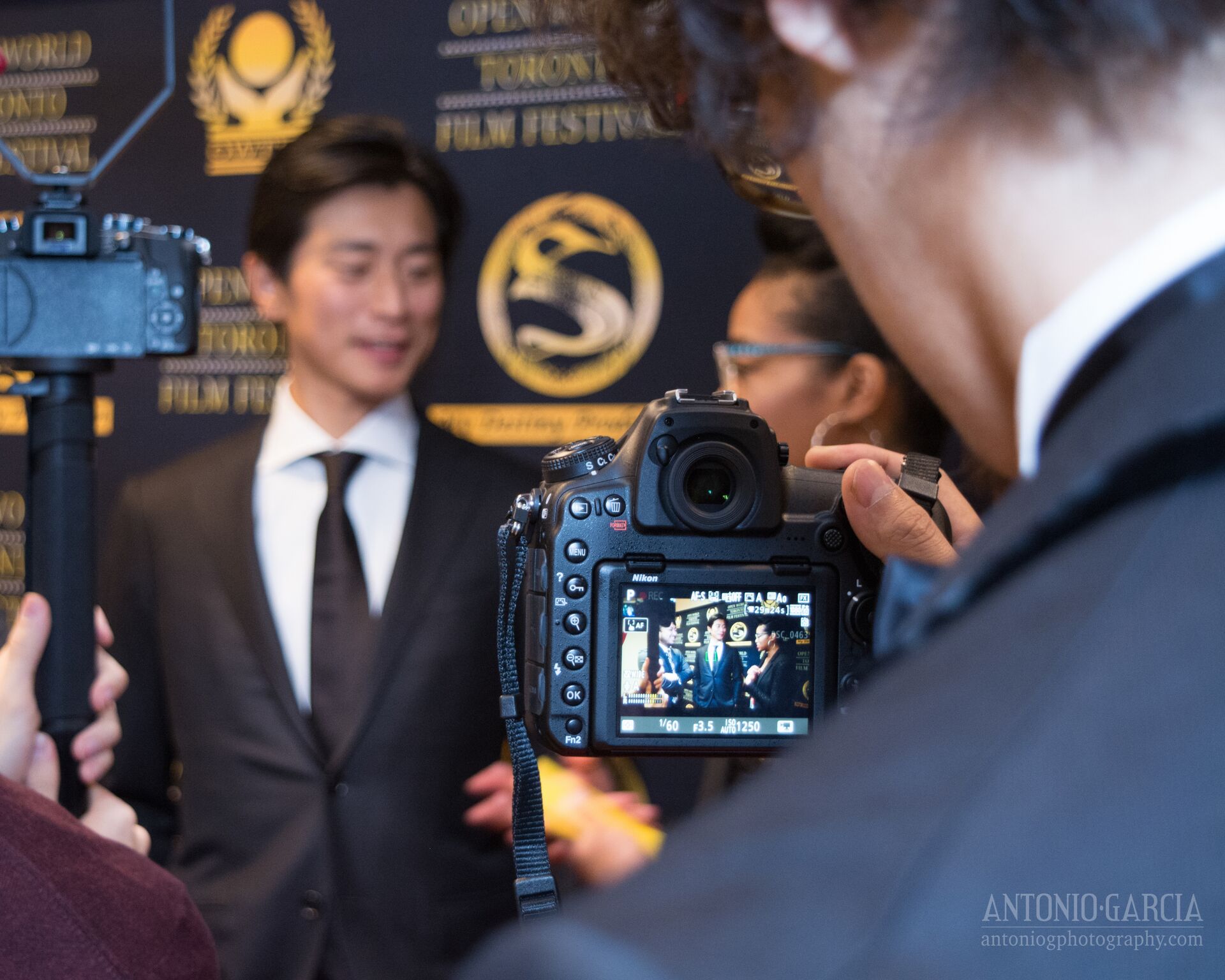Dennis Bayazitov | Assistant News Editor
Featured image: The event benefitted filmmakers, photographers, models, and further new talent alike. | Courtesy of Antonio Garcia Photography
Friday November 17 marked the opening of the third annual Open World Toronto Film Festival (OWTFF)—held in the Alliance Francaise Spadina Theatre, just north of the Maddy—lacing together a celebration of aspiring Toronto film talent, musical performance, multimedia coverage, and international filmmakers sharing their lessons from the industry, for the industry.
“Students are young. They are fresh,” says Sabine Mondestin, OWTFF president and founder.
“What I love is to be able to give them that platform to be able to experience the festival feel, to be able to know what it is like to showcase their film and to have that experience. We have granted free access to all university and college students.”
Upon entry, festival-goers could not help but notice the red carpet laid out before them with an OWTFF backdrop ringed by a wave of fluttering flashes as photographers and videographers captured the night’s invited talent. Downstairs in the basement, a professional makeup studio was assembled to have everyone feeling celebrious.
“I attend so many other events in Los Angeles,” Mondestin explains. “What I really like there is that feeling of ‘Oh my God, I’m a star!’ so I really want to give students that same treatment. [The filmmaker’s] film is there, and they get the star treatment: the paparazzi-style pictures—this is something that people like.”
Mondestin says she uses this unique framework to also recognize new photographers. “[Student photographers] don’t all have careers, but they are talented. They send us their portfolios and say: ‘I really want to take pictures in front of the red carpet.’”
Over the course of three days, the festival featured 17 films and provided a space for directors, producers, actors, models, film reviewers, and multimedia professionals to all network and share their processes. Screened movies were selected from submissions to FilmFreeway and the official OWTFF website.
“We’ve been travelling around and, you know, Canada is a bit behind on this compared to Los Angeles,” says OWTFF Director Steve Lareau.
“Over there they really know how to market their movies, but here—not so good. We are inspired quite a bit by Los Angeles in this business model.”
The 2017 film selection featured short student films, documentaries, animated shorts, music videos and experimental films from Toronto, New York, Japan, and Turkey. Films included The Kidnapping of a Fish, Poison in the Water, The Oasis Affair, Nights of Contrition, Princess Eun Hwa, The Box, Voice of Grace, Frapuccino, Approaching, Finding Hope, and Echo Park Blues.
“There have been lots of movies we’ve seen over the years that have been excellent, but we think that even more people should see them—to bring some light to those talents,” adds Lareau. “Every year, as soon as we’re done with a festival, we start to find new talent for next year, and we really try to find those little diamonds.”
The festival further featured a conference, moderated by Alina Christensen, on financing and filming in—and co-producing with—China alongside James Nan Guan, a Chinese producer who has worked on films such as Crouching Tiger, Hidden Drago, among others.
Christensen, a York Theatre alumna, says she was particularly impressed with Nan’s eagerness to share his knowledge. “It was clear to me that despite all the experience he has, he was still very humble and passionate about cinema, wanting to connect with likeminded artists here in Canada.”
Nan forecasted that the Chinese film industry will soon surpass Hollywood’s.
“The Chinese population is much greater [than America’s],” Nan noted on stage, speaking with her. “Toronto’s is three million; Beijing’s, 23 million. If even 10 per cent of China sees a movie, that’s already more than all of Toronto.”
“He answered every question with confidence and in plenty of detail, and he even threw in some humour too,” Christensen adds. “His charisma kept the audience attentive and focused.”
OWTFF further invited critics and reviewers to offer feedback to the featured talent.
“Film festivals offer a great opportunity for young filmmakers to network and meet industry professionals,” says Maziyar Khatam, a Toronto filmmaker who had his own movies screened. “It’s a good chance to have your film screened in front of an audience and to receive feedback on your work.
“The technical aspects of [OWTFF’s] films—the cinematography, editing and music—were astounding. My favourite film from the festival was Bakemono, a 48-minute Japanese experimental film.”
This is the festival’s third year running. “We try to add one day every year,” Lareau mentions. “The first year we did one; the next year, two; and this year, we did three.”
“It’s easy to remain in your university bubble, especially at a school like York which is located away from the downtown core and where everything you need is on campus,” Christensen notes. “It’s a really good idea to get out there and begin creating a network outside of your own school, which allows you to meet industry professionals as well as other students.”
After all, this is what Mondestin aimed to create.
“The main thing we want to accomplish is to showcase talented filmmakers who have the talent, but don’t have the name,” she says. “It’s hard to get into festivals if you don’t have a name.
“And I’m all about glamour.”


